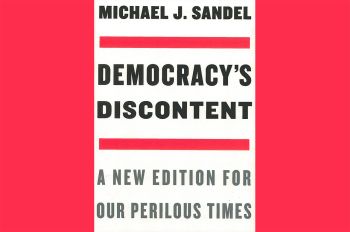Chicago-Kent Professor Bernadette Atuahene Wins the 2020 John Hope Franklin Award from the Law and Society Association

Chicago-Kent Professor Bernadette Atuahene is the recipient of the 2020 John Hope Franklin Award from the Law and Society Association for her article “Predatory Cities.” The annual award recognizes exceptional scholarship in the field of race, racism, and the law.
The Law and Society Association is an interdisciplinary scholarly organization committed to social scientific, interpretive, and historical analyses of law across multiple social contexts. The award is named after John Hope Franklin, a professor of history and law whose interdisciplinary research documented the history of racism and its effects.
Predatory cities are urban areas where public officials systematically take property from residents and transfer it to public coffers, intentionally or unintentionally violating domestic laws or basic human rights. Atuahene introduces this new sociolegal concept in “Predatory Cities,” which was published in the California Law Review in February. In the abstract, Atuahene wrote that this article is “the first attempt to understand the intersecting economic, social, and political factors” that have caused struggling cities like Detroit, Ferguson, Mo., New Orleans, and Washington, D.C., to become predatory.
“Through an ethnographic study of illegal property tax assessments in Detroit, I find that predatory systems, rather than a few predatory people, initiated and perpetuated the illicit practices,” she wrote. “More specifically, several factors made the City and its residents extremely vulnerable, and thus susceptible, to predation. Against this backdrop of vulnerability, certain legal and governance failures created structural opportunities for predation to advance at scale.”
Detroit completed foreclosure proceedings on one in four properties from 2011–2015. Michigan’s state constitution prohibits property tax assessments from exceeding 50 percent of a property’s market value. When Atuahene analyzed assessment and sales data from 2009–2015, she found that 55–-85 percent of properties in Detroit were assessed substantially above the state constitution’s limits and that this was the most pronounced for lower-valued properties. The result led to thousands of foreclosures and had a disproportionate impact on African-American communities.
Atuahene found that no other U.S. city has experienced this elevated rate of property tax foreclosures since the Great Depression and that Detroit is far from alone. The predatory cities phenomenon affects many urban areas, and Atuahene says that U.S. legal scholarship has thus far overlooked this important area of research.
Atuahene has been a member of the Chicago-Kent faculty since 2005 and is also an American Bar Foundation Research Professor. Her scholarship focuses on the confiscation and restitution of property. In her first book, We Want What’s Ours: Learning from South Africa’s Land Restitution Program, Atuahene introduced the concept of “dignity takings,” linking the unconsented taking of property rights and the deprivation of dignity. She teaches Law, Policy, and International Development; Property; Trusts and Estates; and International Business Transactions at Chicago-Kent.
In 2019 Atuahene was named a Soros Equality Fellow. The Soros Equality Fellowship program supports innovators and risk-takers striving to create and develop new ways of tackling the systemic causes and symptoms of racial disparity and discrimination.
Read the Law and Society Association’s full 2020 Annual Awards press release here.
Read "Predatory Cities" in the California Law Review here.



